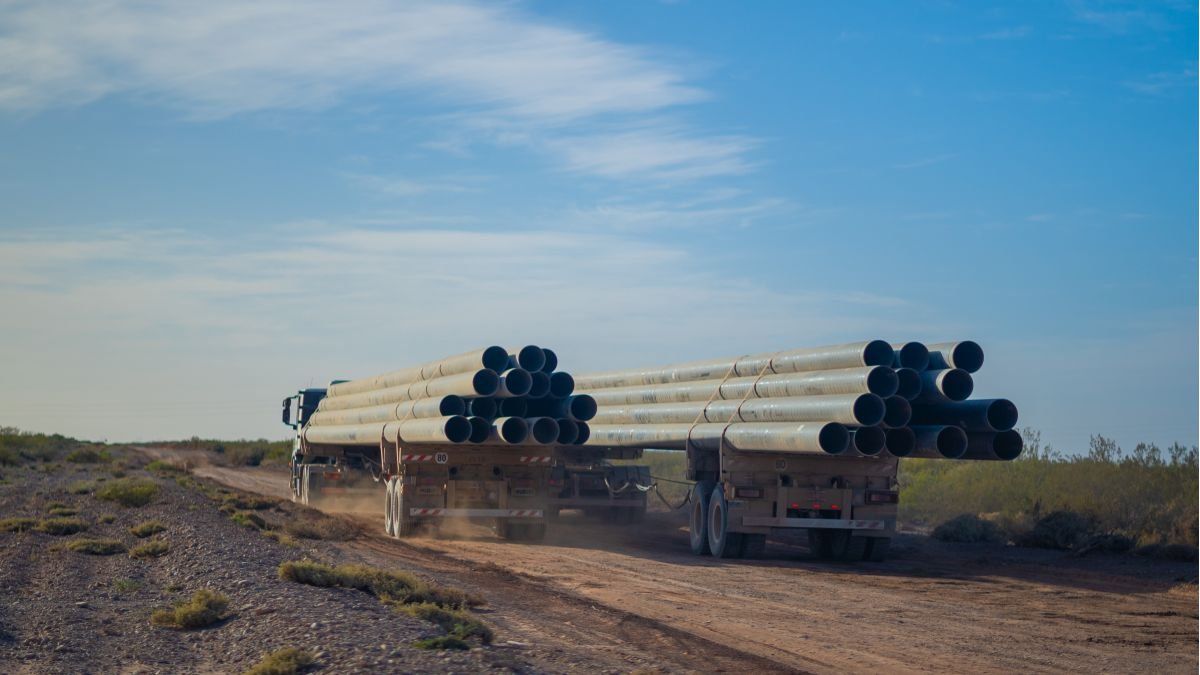The Secretary of Energy regulated this Tuesday the procedure of authorization to export oil through cross-border pipelinesthrough Resolution 175/2023, published in the Official Gazette.
The purpose of the resolution is “optimize” the export of hydrocarbons with the objective of “preserving and obtaining foreign currency” coming from them.
Since the imminent reactivation of the Trans-Andean Pipeline to Chile and there are differences regarding the export by ships, the regulations seek regulate “in a differentiated and autonomous way” the export through cross-border pipelines considering “the logistic contingencies and technical and economic variables which implies the continuity of supply required to obtain competitive sales contracts”.
Based on this regulation, companies interested in exporting must register their operations with the Undersecretariat of Hydrocarbons informing, among other data, the oil pipeline used, the country of destination, the exploitations that will contribute the volumes of oil, the export schedule and its maximum volume estimate for the year, in addition to information on prices contracted or projected.
Then the undersecretariat, with a period of 60 days, will carry out the “pertinent technical and economic analyses” in order to ensure that exports “do not have a negative impact” on domestic supply, and then it will authorize or not export operations, being able to reduce the maximum volume requested if necessary.
During that span, The area may grant provisional authorizations of up to 90 days to be able to perform tests on the pipelines, if required.
After being approved, the operations will also be informed to the General Directorate of Customs (DGA) so that it “instruments the respective shipping permits through the Malvina Information System.”
Prior authorization, to the same a surplus export may be added or may also be transferred to another company.
During the validity of the authorizations, The companies must inform within 15 calendar days after the end of the month the shipping permit number granted by Customs and a form with the volumes exploited on a daily basis.in addition to keeping updated the information regarding the final destination of the volumes and modifications in the delivery schedule.
The Ministry of Energy clarified that this authorization procedure will be evaluated annually taking into account the level of investment in the sector, the evolution of oil reserves and their prices, as well as the situation of the international energy market.
In case of changes -they indicated- “the firmness, continuity and legal stability of the authorizations will not be affected export granted up to that date”.
Among the recitals it is stated that currently “trunk transportation systems of hydrocarbons available for evacuate production from the Neuquén Basin“are in the limit of its capacity, which restricts its export from the Atlantic Ocean; but that the country has an “opportunity to generate an export market” through the existing cross-border pipelines for exports to Chile “and eventually other markets from the Pacific Ocean” without the need for “large additional investments.”
In this sense, it is projected that the Transandino pipeline, 427 kilometers long and with a capacity of 110,000 barrels per days, will be rehabilitated in the coming months after 16 years of inactivity in a binational system that has YPF, Chevron and ENAP as main shareholders.
Source: Ambito




